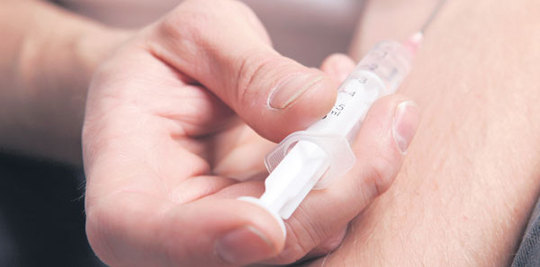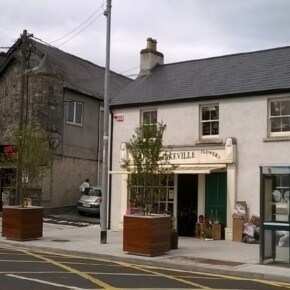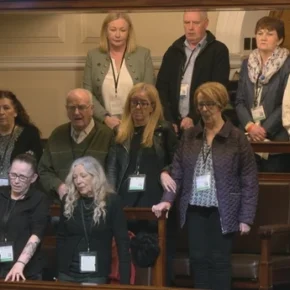Call for radical measures to tackle drugs crisis
Dublin People 01 Aug 2015
DRUGS workers have warned that the city’s approach to addiction
“belongs to a different time
? and are calling for decriminalisation, injecting centres and detox units for chaotic users to be introduced.
The issues were discussed at a
‘think tank’ on drugs hosted last week by Lord Mayor CrÃona Nà Dhálaigh in the Mansion House.
The event was organised by Minister of State with special responsibility for the National Drugs Strategy, Aodhán Ã? RÃordáin, who heard calls for new measures to tackle the city’s drugs crisis.
“The approach we currently have belongs to a different time,
? said Tony Duffin, Director of the Ana Liffey Drug Project.
“Drug use is no longer just heroin. People are using a wider variety of substances, and we need to be able to respond flexibly to that.
“As it stands, the main problem when working with people who use multiple substances chaotically is that there are no residential detox services that are immediately accessible – people are generally expected to have achieved a certain stability in the community.
“This is often not achievable for many people, and they are consequently excluded from the treatment they need.
“Crisis detox services exist in other jurisdictions. Establishing such services in Ireland would have an immediate positive benefit for the individuals, their family and the wider community.
?
The current National Drugs Strategy runs to the end of 2016 and drugs workers are pushing for radical changes in the next plan that’s now being drawn up.
These include decriminalising drugs, a measure controversially introduced in Portugal that has been claimed led to a reduction in deaths from overdose.
“The Portuguese experience of decriminalising drugs is rightly drawing strong attention internationally,
? Duffin said.
“Minister Ã? RÃordáin has begun a national discussion on decriminalisation and this is to be welcomed.
“However, we must remember that in Portugal they changed their approach not only to possession of small amounts of drugs for personal use, but to treatment and rehabilitation, aftercare, housing and employment for people who need help with their drug problem.
“This will be necessary in Ireland too if we are to improve the quality of life of all our citizens.
?
Those attending last week’s
‘think tank’ also heard that a key problem in Dublin was public drug use which leads to unsafe disposal of drug paraphernalia.
Speaking at the Mansion House, Head of Policy and Advocacy at the Ana Liffey Drug Project, Marcus Keane, reiterated calls for Medically Supervised Injecting Centres (MSICs), something both the Lord Mayor and Minister Ã? RÃordáin have indicated support for.
“Public injecting is a problem for the people engaged in the activity and also those who live and work in the area where public injecting takes place,
? Keane said.
“It benefits no-one. Medically supervised injecting centres are an evidence based approach to addressing this issue pragmatically – they improve health outcomes for drug users and can significantly reduce the incidence of public drug use.
“They improve quality of life for all stakeholders. Critically, they are also cost effective.
“The evidence is clear – injecting centres save lives and money.
?
The Joint Oireachtas Committee on Justice is currently seeking public submissions on decriminalisation and other measures for the next National Drugs Strategy.











